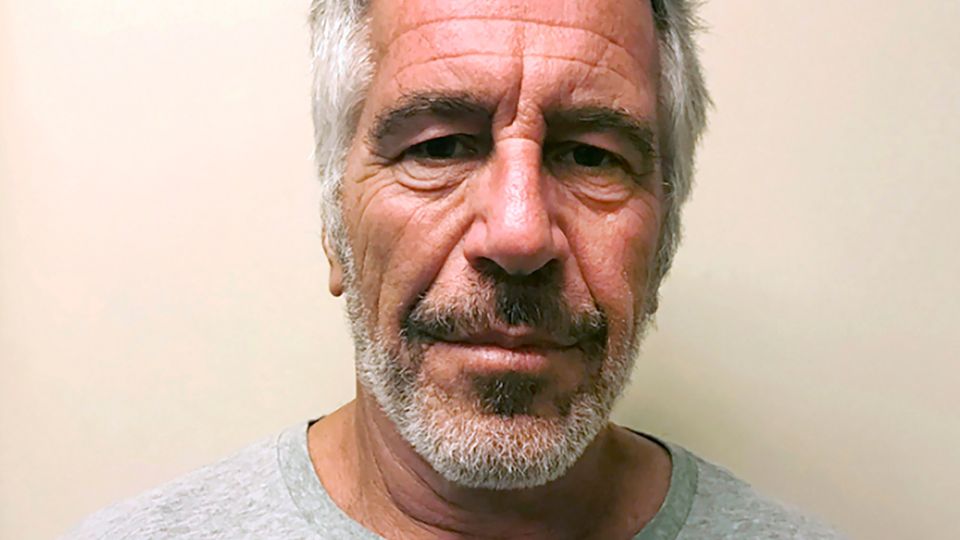The House Oversight Committee has issued nearly a dozen subpoenas to the Justice Department and high-profile Democratic and Republican figures for files and information related to the late convicted sex offender Jeffrey Epstein, a major move that comes as many congressional Republicans call for more transparency around the case.
The subpoena to the Justice Department calls for it to provide Congress any Epstein files in its possession, with victims’ names redacted. It also calls for communications between former Biden administration officials and the Justice Department related to the case.
The Republican-led panel additionally subpoenaed 10 individuals for closed-door depositions between August and mid-October. Those are: former Attorneys General Merrick Garland, William Barr, Jeff Sessions, Loretta Lynch, Eric Holder and Alberto Gonzales; former FBI Director James Comey; former special counsel and FBI Director Robert Mueller III; former Secretary of State and first lady Hillary Clinton; and former President Bill Clinton.
Subpoena deadlines are often starting points for negotiation on Capitol Hill and are sometimes pushed back, narrowed or challenged as political and legal disputes evolve around congressional inquiries.
The House has fought for years to bolster its ability to force executive branch officials to testify pursuant to subpoenas. But the courts have ultimately given little legal help to congressional committees, causing subpoena fights to drag out for years with no conclusive ability for the House to use the courts to enforce them quickly.
The Republican-led panel subpoenaed the six former attorneys general and two former FBI directors to speak with them about their time leading the DOJ and FBI that coincided with the criminal investigation into Epstein and his former associate Ghislaine Maxwell.
Republicans zeroed in on former President Bill Clinton for his documented association with Epstein, which has publicly surfaced as part of civil lawsuits. In their subpoena letter to Hillary Clinton, Republicans cited as reasons to depose her the hiring of Maxwell’s nephew to her 2008 campaign, as well as her relationship to her husband.
“While the Department undertakes efforts to uncover and publicly disclose additional information related to Mr. Epstein and Ms. Maxwell’s cases, it is imperative that Congress conduct oversight of the federal government’s enforcement of sex trafficking laws generally and specifically its handling of the investigation and prosecution of Mr. Epstein and Ms. Maxwell,” the committee wrote in its subpoena letters.
CNN has reached out to those subpoenaed.
A spokesperson for the Justice Department confirmed that the department received the subpoena for documents, but declined to comment further. An attorney for Comey also declined to comment.
In a number of its subpoena letters, the panel told those being asked to sit for interviews: “The Committee believes that you possess knowledge and information relevant to its investigation.”
Demands for more information related to Epstein have roiled Capitol Hill in recent weeks. The subpoena amounts to a show of defiance by some Republicans against House Speaker Mike Johnson – who has attempted to tamp down congressional efforts to push for the release of the so-called Epstein files, instead arguing President Donald Trump’s administration should have time to act on the issue.
House Oversight Chair James Comer issued the subpoenas Tuesday after three Republicans joined with Democrats in a subcommittee vote late last month to release the files.
As pressure mounted on Capitol Hill, the Republican House speaker shut the door on the possibility of a House vote on releasing information on Epstein before the August recess and moved to send lawmakers home early after it became clear that the issue was not going to fade away.
Johnson has said that he supports transparency and has argued the president should be granted space to handle the matter before Congress intervenes, pointing to the administration’s push to unseal grand jury materials related to the case – a move Maxwell opposed in a court filing Tuesday.
Last month, the Justice Department sent its No. 2 official, Todd Blanche, to interview Maxwell, while asking courts to unseal grand jury materials from the case, and Trump has said he is open to releasing “credible” materials.
Still, members of both parties have plowed ahead on the issue.
The oversight panel separately subpoenaed Maxwell for a deposition – though it recently agreed to delay her testimony until after the US Supreme Court weighs her pending appeal of her conviction. Maxwell, who was sentenced to 20 years in federal prison in 2022 for carrying out a years-long scheme with Epstein to groom and sexually abuse underage girls, has asked the Supreme Court to take up her appeal and overturn her sex-trafficking conviction.
And Democrats, who have viewed the controversy as a key test for Trump as he tries to satisfy his normally loyal base, moved to use an arcane procedural tool to force the Justice Department to release additional materials. The likelihood of their success hinges in part on the willingness of the Trump administration to release the information, as a court fight would be unlikely to force the documents over to Congress in the short term.
CNN reported Tuesday that the Justice Department has an audio recording of Blanche’s interview with Maxwell, and the administration is considering releasing a transcript of the interview publicly, according to three senior administration officials.
This story has been updated with additional details.
CNN’s Katelyn Polantz, Devan Cole and Edward-Isaac Dovere contributed to this report.
For more CNN news and newsletters create an account at CNN.com

